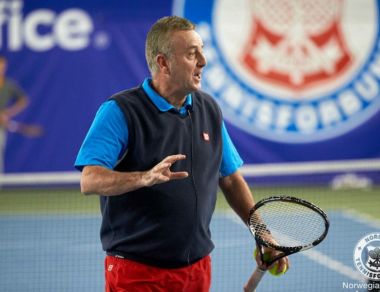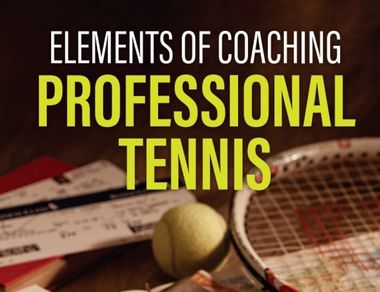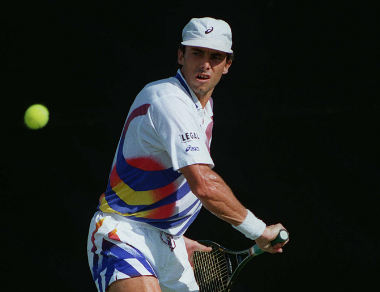Janko Tipsarevic was an atypical character in the tennis world compared to most professional players. He’s an avid reader of Fyodor Dostoevsky, and many on the ATP Tour called him “a little professor”. He bears a very close resemblance to former football world champion Gennaro Gattuso from Italy. No one could be better at painting a portrait of the Serbian star than Alberto Castellani, his former coach and president of the GPTCA. Here’s a fun and informative article about Janko.
“I am a sick man…. I am a spiteful man. I am an unattractive man. I believe my liver is diseased… I know nothing at all about my disease, and do not know for certain what ails me. I don’t consult a doctor for it, and never have, though I have a respect for medicine and doctors… Now I am forty. I used to be in the government service, but am no longer. I was a spiteful official. I was rude and took pleasure in being so… It was not only that I could not become spiteful, I did not know how to become anything; neither spiteful nor kind… an intelligent man cannot become anything seriously, and it is only the fool who becomes anything. Yes, a man in the nineteenth century must and morally ought to be pre-eminently a characterless creature.“
This is one of Janko’s favorite excerpts from “Notes from the Underground” by Fyodor Mikhailovich Dostoyevsky. This self-confession of the book’s protagonist was written in 1860, but not published until 1864. The excerpt is a one of Dostoyevsky’s most intense and ruthless literary works, a short novel which Janko thinks is the most important in the opus of the great Russian writer. I had to reread certain parts because I wasn’t sure if they were quotes by Dostoyevsky or Tolstoy.
Janko is a man of endless curiosity when he’s off the tennis court. He is interested in knowing everything and likes explaining things to other people. During one winter training in Dubai, everyone in his group called him the “little professor”. He says, “you know, the greatness and uniqueness of ‘Notes from the Underground’ is that Dostoevsky spoke of the ‘subconscious’ soul many years before Freud who was only eight years old at the time of the book’s publishing. The ‘underground’ represents the background of the consciousness inside of each of us … what an intuition! That’s the greatness of Fyodor!” I truly learned a lot about the Russian writer from this lesson in literature from Janko.
A few years ago we talked about many philosophers and authors, but the one who always came up was Dostoyevsky. Janko knows everything about him; at the tournament in Moscow, he beat Mathieu, and then ran to check out the museum house of the great Moscow novelist. The next day he played Safin, but on that particular day the only thing on his mind was Dostoyevsky. An indelible tattoo: “Beauty will save the world” is proudly displayed on Janko’s body, a quote taken from his most famous novel, “The idiot” which confirms his everlasting love for Fyodor.
I have known Janko since the end of 2005, when he called me on the phone and asked me to help him train. Janko had fallen to #138 in the ATP rankings, and won just two matches from Wimbledon until January 2006 where he had to defend many points in the first tournament of the year. We worked hard, I made a personalized technical, physical, and mental training plan for him. We tried to focus on improving his serve, net approach, and for him to play a meter or two deeper while focusing on the “rising” ball.
We worked mainly on the mental aspect of activation and concentration, because Janko’s energy tends to decrease as he gets distracted. He improved rapidly and his performance on all surfaces became more constant, as he became an “all surfaces player.” He won four Challengers on three different surfaces, and he beat Murray, Rochus and many other top 60 players. He had match points against Safin, Nalbandian, Ferrero. He finished 2006, exactly one year after we began our cooperation, ranked number 60 in the ATP rankings; Janko’s career best ranking.
“Alberto, you’re too good to me, you want the best for me, ” he told me so often. After we finished training we would do a different, but more important workout. This type of workout is what makes you grow as a man and as a person, and it is also what brings great results for many people. We began our endless philosophical discussions: is there a God or not? Is there a truth? Who made the universe?



